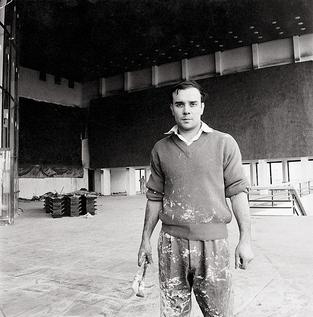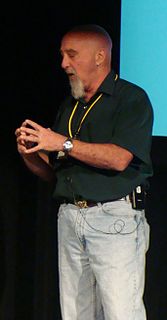A Quote by Thomas Metzinger
I believe we should really take our own phenomenology more seriously. What a good theory of conscious must explain is the variance in this subjective sense of realness: There clearly is a phenomenology of "hyperrealness", for example during religious experiences or under the influence of certain psychoactive substances.
Related Quotes
The immaterial told me that I was indeed an occidental, a right-thinking Christian who believes in the 'Resurrection of the flesh'. A whole phenomenology then appeared, but a phenomenology without ideas, or rather without any of the systems of official conventions. What appeared was distinct from form and became Immediacy. 'The mark of the immediate' - that was what I needed.
The writing I have in mind and sometimes indulge in myself is concerned, not with plants, mountains or birds as items of scientific description, but with experiences of nature that impinge upon our moods and emotions, enrich our imagination and reveries, and shape our sense of how we stand in relation to the environing world. In a broad sense of the term, this kind of writing is an exercise in phenomenology, an attempt to render the significance that birds, plants or whatever have for us.
Here we are at the very core of the thesis we wish to defend in the present essay: reverie is under the sign of the anima. When the reverie is truly profound, the being who comes to dream within us is our anima. For a philosopher who takes his inspiration from phenomenology, a reverie on reverie is very exactly a phenomenology of the anima, and it is by coordinating reveries on reverie that he hopes to constitute a "Poetics of reverie". In other words, the poetics of reverie is a poetics of the anima.
We have no proper understanding of the relationship between conscious thought and conscious sensation. The various forms of thought and sensation are underpinned by very different neural mechanisms; so how can the neural correlate of their conscious natures be the same? I don't think we are yet in a position to make such speculations. To make progress, we have to have a good conception of the phenomenology of consciousness, among other things.
I think that if you are a resolute, unswerving atheist, you have that sense that you are conscious of the God-shaped hole that has been left in the wake of any religious belief, and in a way, one is much more drawn to articulate why it is that certain places, or certain experiences, have a kind of power.
If there is some end of the things we do, which we desire for its own sake, clearly this must be the good. Will not knowledge of it, then, have a great influence on life? Shall we not, like archers who have a mark to aim at, be more likely to hit upon what we should? If so, we must try, in outline at least, to determine what it is.
Out of the multitude of our sense experiences we take, mentally and arbitrarily, certain repeatedly occurring complexes of sense impression (partly in conjunction with sense impressions which are interpreted as signs for sense experiences of others), and we attribute to them a meaning the meaning of the bodily object.








































